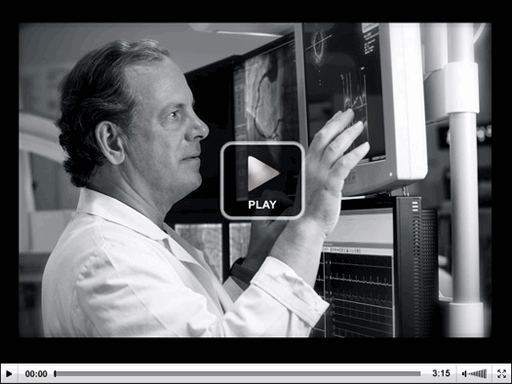| Editor’s Note: The following is a message from our sponsor, Newsmax Health. Views expressed here do not necessarily reflect those of Bill O'Reilly or BillOReilly.com. |
|
"Heart disease CAN be reversed . . . Dear Reader, Dr. Crandall, chief of the cardiac transplant program at the esteemed Palm Beach Cardiovascular Clinic in Florida, is not your typical heart doctor. He’s been on both sides of the examination table — as a heart doctor and as a heart patient. With no family history of heart disease, and without warning, at age 48 Dr. Crandall had a massive heart attack. To save his life, doctors performed emergency surgery and placed two stents in his heart. And that’s when his life changed. He realized from this episode that if he wanted to continue to make a significant contribution to this world, he had to take better care of his own health, and particularly his heart. At that moment, Dr. Crandall began his own fight with heart disease — a fight he won. S adly, heart disease is STILL the #1 killer of Americans, responsible for nearly one-third of ALL deaths. It kills more men and women each year than all cancers combined, including breast cancer. And shockingly, most Americans over age 35 already suffer from heart disease, whether they know it or not. Yes, heart disease often starts early in life, and then slowly progresses until one day it manifests as a very serious problem, even a fatal one. But here’s the good news . . . Heart disease is completely unnecessary because it can be prevented, and even reversed . . . That’s why if you, or anyone you love, is suffering from heart disease, you need to see This Important Video and learn about the 4 warning signs you are about to have a heart attack. These four things are the focus of a recent video presentation by renowned cardiovascular expert Dr. Chauncey Crandall: 4 Things You'll Feel Right Before a Heart Attack. According to Dr. Crandall, the reason silent heart attacks go untreated is that people don't even notice the symptoms, so he created a special video presentation to show the four things to look for that may be a silent warning – before it's too late to intervene and survive the damage. Timing is the most critical factor for survival. Statistics show a clear link between delay in treatment and disability or death - the amount of time that elapses between the first sign of symptoms and receiving care. That's why knowing what to look for in terms of symptoms is critical, especially when they're the kind that most people don't think to associate with a heart attack - like the four things in Dr. Crandall's video, 4 Things You'll Feel Right Before a Heart Attack. Here’s to good health,
P.S. Click here now to get your FREE Special Report and FREE copy of The Simple Heart Cure. You will be so glad you did! |
You received this email because you’re subscribed to email
updates on BillOReilly.com
|
||||

